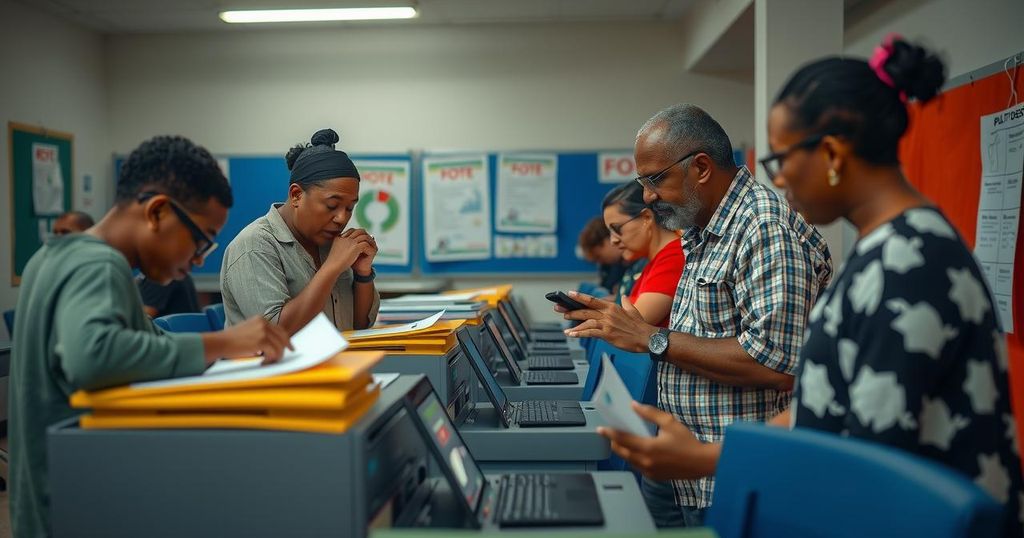World news
AFRICA, AFRICAN UNION, ALLIANCE OF CHANGE, BRITAIN, CHAGOS ISLANDS, DEMOCRACY, DEMONSTRATIONS, GOVERNMENT, INDIAN OCEAN, MAURITIUS, MILITANT SOCIALIST MOVEMENT, NATIONAL ASSEMBLY, NAVIN RAMGOOLAM, OPPOSITION, POLITICS, POPULISM, PR, PRAVIND JUGNAUTH, RAMGOOLAM, SHEILA
Michael Grant
0 Comments
Mauritius Holds Elections Amidst Political Scandal and Calls for Stability
Mauritius held parliamentary elections amid a phone-tapping scandal affecting the integrity of its democracy. The ruling party faced heightened scrutiny and opposition from former leaders. Voter turnout was 70%, with concerns about governance and corruption influencing the electoral climate. As political leaders navigate these challenges, the results could have significant implications for the nation’s future.
Mauritius conducted parliamentary elections amidst a significant phone-tapping scandal that has raised concerns over the integrity of its democratic processes. The election, pivotal for the economic and political stability of the nation, followed a historic agreement where Britain’s sovereignty over the Chagos Islands was ceded to Mauritius. Incumbent Prime Minister Pravind Jugnauth faced unexpected challenges, including the fallout from leaked phone conversations involving prominent figures, leading to a temporary social media ban aimed at curbing dissent. Amidst increasing worries about civil liberties and governance, the election had citizens weighing their options between the ruling Militant Socialist Movement and the opposition Alliance of Change, led by former Prime Minister Navin Ramgoolam. Balloting proceeded peacefully with heightened security and oversight from international observers, yet allegations of potential fraud were raised. The turnout was reported at 70 percent, with results anticipated to be released shortly. Concerns over economic stability linger as Mauritius has encountered issues pertaining to governance and increasing corruption during the past five years, exemplified by procurement scandals linked to the Covid-19 pandemic. The political landscape has remained dominated by a select few families since independence, propelling new alliances to challenge the status quo amidst calls for decolonization. Both Jugnauth and Ramgoolam expressed confidence in their respective chances of victory, making promises to address poverty and the cost of living. However, the broader implications of governance and international relations remain pressing as Mauritius navigates its future on the global stage.
Mauritius, a stable democracy since independence in 1968, is recognized for its economic growth and development, particularly in tourism, financial services, and textile manufacturing. However, recent tensions have emerged surrounding governance issues and corruption, amplified by scandals and a perception of eroding civil liberties. The significance of the recent agreement concerning the Chagos Islands added complexity to the electoral landscape, as political leaders sought to leverage this development. As the nation prepares for its 12th election, the electorate faces key choices that will impact the future trajectory of both its economy and its democratic institutions.
In conclusion, the parliamentary elections in Mauritius occurred under the specter of political scandal and public unrest, signaling noteworthy challenges for the nation’s future. With an emphasis on combating poverty and stabilizing the economy, both main political factions voiced confidence ahead of the results. However, the underlying issues concerning governance, civil liberties, and the impact of shifting global dynamics on local agreements continue to loom large. As results are awaited, the importance of upholding democratic principles in Mauritius remains crucial for its development trajectory.
Original Source: www.guampdn.com




Post Comment